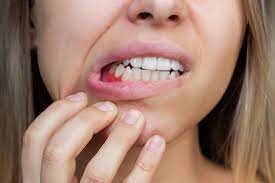Dental health is a crucial aspect of overall well-being, yet many people tend to overlook it until they face serious issues. From cavities to gum disease, common dental problems can significantly impact your oral and general health. The good news is that with natural prevention strategies, many of these issues can be avoided or minimized.
Tooth Decay and Cavities
Tooth decay, often referred to as cavities, is one of the most widespread dental issues. It occurs when bacteria in the mouth produce acids that erode the enamel of the teeth. If left untreated, decay can reach deeper layers of the tooth, causing pain and infection.
Natural Prevention
- Rinse your mouth with warm saltwater daily to maintain pH balance.
- Use a fluoride-free herbal toothpaste with neem or clove oil.
- Chew raw vegetables like carrots and celery to help clean teeth naturally.
- Reduce sugar intake and avoid sticky snacks.
Gum Disease (Gingivitis and Periodontitis)
Gum disease begins with gingivitis—swollen and bleeding gums. If not treated early, it can progress to periodontitis, which affects the bone and can lead to tooth loss.
Natural Prevention
- Practice oil pulling with coconut or sesame oil for 10–15 minutes daily.
- Brush gently with a soft-bristle toothbrush to avoid irritating gums.
- Drink green tea, which contains antioxidants that support gum health.
- Increase your vitamin C intake through fruits like oranges and kiwis.
Bad Breath (Halitosis)
Chronic bad breath is often caused by poor oral hygiene, food particles, dry mouth, or gum disease.
Natural Prevention
- Stay hydrated to stimulate saliva production.
- Chew parsley or mint leaves after meals to freshen breath.
- Use a tongue scraper to remove odor-causing bacteria.
- Gargle with baking soda and water.
Tooth Sensitivity
Sensitivity to hot or cold foods and drinks can stem from enamel erosion or exposed tooth roots.
Natural Prevention
- Avoid brushing teeth immediately after consuming acidic foods or drinks.
- Use a desensitizing herbal toothpaste with ingredients like aloe vera or chamomile.
- Avoid excessive consumption of citrus fruits and soda.
- Rub a small amount of clove oil on sensitive areas for temporary relief.
Tooth Erosion
Tooth erosion occurs when acid wears away the enamel, often due to frequent consumption of acidic foods or drinks.
Natural Prevention
- Drink acidic beverages like orange juice or soda through a straw.
- Rinse your mouth with water after consuming acidic items.
- Include calcium-rich foods in your diet to strengthen teeth.
- Avoid brushing teeth for at least 30 minutes after eating acidic foods.
Tooth Grinding (Bruxism)
Many people grind their teeth, especially at night, which can lead to worn-down enamel, jaw pain, and headaches.
Natural Prevention
- Manage stress through yoga, meditation, or deep breathing exercises.
- Use a night guard if recommended by a dentist.
- Apply warm compresses to relax the jaw before sleeping.
- Ensure proper magnesium intake to support muscle relaxation.
Natural Remedies to Support Overall Dental Health
Maintaining a natural approach to dental health doesn’t mean skipping professional care. It means combining home-based strategies with regular checkups.
Here are some helpful natural additions to your routine:
- Neem twigs: Traditionally used as toothbrushes, they have antibacterial properties.
- Clove oil: Acts as a natural analgesic for toothache relief.
- Licorice root: Helps reduce plaque and inhibit bacterial growth.
- Aloe vera: Useful in reducing gum inflammation and soothing sores.
Daily Natural Oral Hygiene Routine
| Step | Natural Approach | Why It Works |
|---|---|---|
| 1 | Oil pulling (coconut oil) | Removes toxins and improves gum health |
| 2 | Brushing (herbal toothpaste) | Gently cleans teeth without harmful chemicals |
| 3 | Flossing with natural silk floss | Removes debris between teeth |
| 4 | Rinsing with saltwater | Maintains oral pH and kills bacteria |
| 5 | Chewing fennel seeds | Acts as a natural breath freshener |
When to See a Dentist Despite Natural Prevention
While natural methods are effective for prevention, they are not substitutes for professional dental care. Visit a dentist if you notice:
- Persistent tooth pain
- Bleeding gums
- Loose teeth
- Sores that don’t heal
- Bad breath that doesn’t go away
Conclusion
Taking care of your dental health using natural methods is both effective and empowering. From oil pulling and herbal toothpaste to dietary adjustments, there are many ways to maintain a healthy mouth. However, combining these with regular dental checkups ensures long-term oral health. A proactive, natural approach today can save you from painful and costly treatments in the future.
FAQs
1. Can I reverse a cavity naturally without going to a dentist?
While early tooth demineralization can sometimes be slowed or halted with good oral hygiene and diet, actual cavities typically require professional dental treatment.
2. How often should I do oil pulling for best results?
Oil pulling can be done daily, preferably in the morning on an empty stomach for about 10–15 minutes.
3. Is saltwater rinse safe for daily use?
Yes, using saltwater in moderation (once daily) is generally safe and helps maintain a healthy oral environment.
4. What foods are best for natural dental health?
Calcium-rich foods, fibrous vegetables, green tea, and water-rich fruits support natural dental health.
5. Can clove oil cure tooth pain permanently?
Clove oil can relieve pain temporarily but doesn’t treat the underlying cause. A dentist should evaluate persistent pain.
